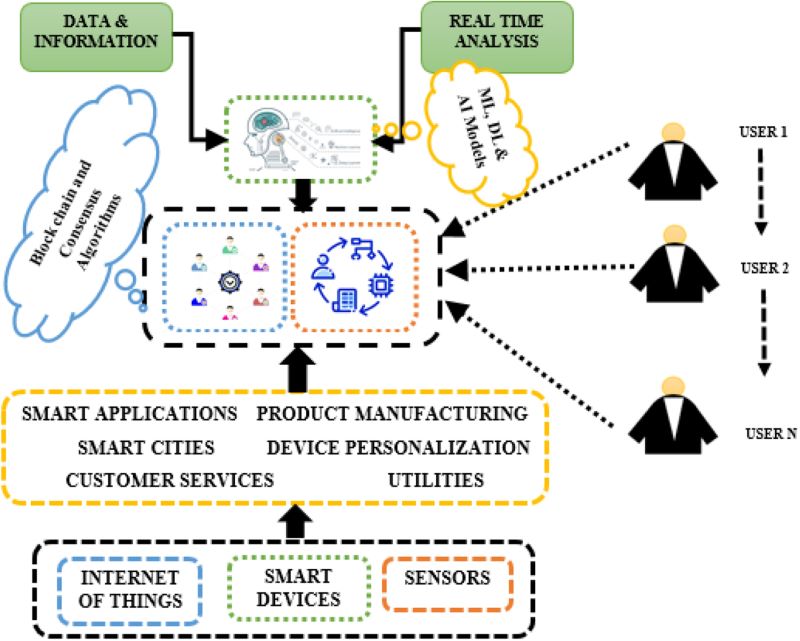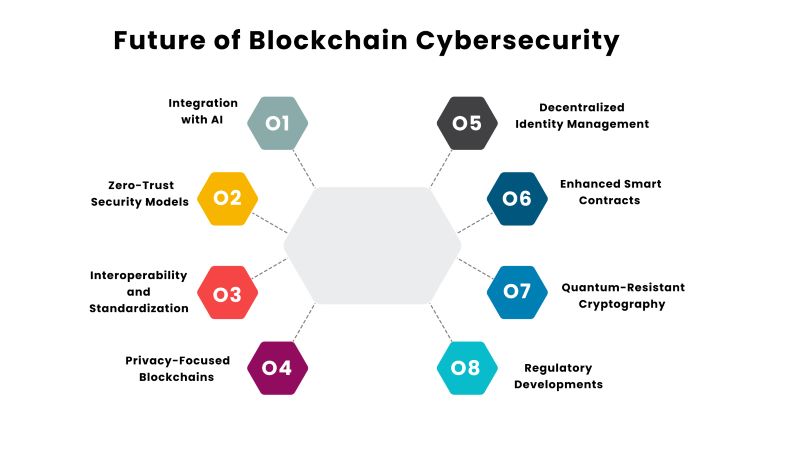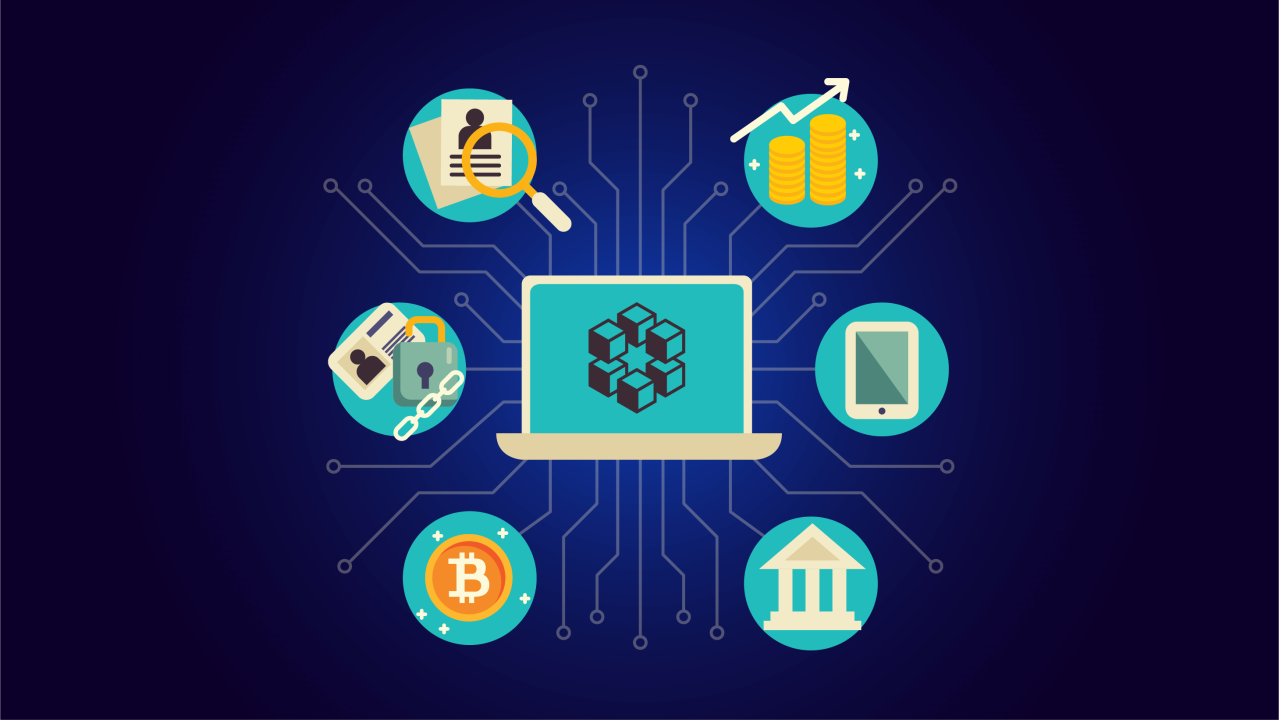Can blockchain technology revolutionize national security? Discover how the National Security Agency and blockchain technology are merging to enhance data security, intelligence gathering, and combat illicit activities, while addressing the complex challenges and risks of this innovative technology.
Blockchain Technology
Blockchain technology is a decentralized digital ledger system that records transactions across multiple computers in a way that ensures data is transparent, secure, and immutable. Unlike traditional databases, blockchain operates without a central authority, making it resistant to tampering and fraud.
Each transaction is added to a “block,” and these blocks are linked together in a chronological “chain,” where once data is recorded, it cannot be altered without altering subsequent blocks, ensuring the integrity of the information.
The backbone of blockchain technology includes key components like hashing and consensus mechanisms. Hashing is a process that converts data into a fixed-size string of characters, making it nearly impossible to reverse-engineer the original input.
Consensus mechanisms, such as Proof of Work (PoW) or Proof of Stake (PoS), are protocols used to achieve agreement among distributed nodes on the blockchain, ensuring that all copies of the ledger are identical and trustworthy.
The NSA and Its Role in National Security
Mission and Responsibilities
The National Security Agency (NSA) is a U.S. government agency responsible for monitoring and protecting national security through intelligence collection and information assurance. Its primary mission is to intercept, decipher, and analyze foreign communications and signals intelligence (SIGINT) while safeguarding U.S. government communications and sensitive information from cyber threats.
Historical Context
Founded in 1952, the NSA has been at the forefront of technological advancements in intelligence and cybersecurity. Over the decades, it has played a pivotal role in intercepting global communications during the Cold War, developing cryptographic systems, and more recently, adapting to the digital age with advanced cyber defense initiatives.

Cybersecurity Challenges
As the threat landscape evolves, the NSA faces significant challenges in protecting critical infrastructure from cyberattacks. The increasing sophistication of nation-state actors, cybercriminals, and emerging technologies like quantum computing pose ongoing risks. The NSA must continuously innovate and collaborate with other agencies and private sector partners to defend against these threats, ensuring the security of the nation’s most sensitive information and systems.
The Intersection of Blockchain and National Security
Potential Benefits
Enhanced Data Security and Integrity
Blockchain’s decentralized nature ensures that data is stored across multiple nodes, making it nearly impossible for malicious actors to alter or delete information. This high level of data integrity is crucial for national security, where the authenticity and reliability of information are paramount.
Improved Supply Chain Transparency
Blockchain technology can track the origin and movement of goods, ensuring that military and defense supply chains are transparent and secure. This reduces the risk of counterfeit or tampered goods entering critical supply lines, thereby enhancing national security.
Enhanced Intelligence Gathering
By leveraging blockchain, intelligence agencies can securely share and access data across multiple platforms, improving collaboration and the speed at which information is processed and analyzed. Blockchain’s immutability ensures that intelligence data remains unaltered, providing a trustworthy source of information.
Combating Illicit Activities
Blockchain’s transparency can be used to trace and disrupt illicit activities, such as money laundering and terrorist financing. By tracking transactions on a public ledger, authorities can identify suspicious patterns and take preemptive actions against threats.
Potential Risks
Privacy Concerns
The transparency of blockchain, while beneficial for security, can also pose significant privacy risks. The permanent and publicly accessible nature of blockchain records could expose sensitive information, leading to potential misuse or unauthorized access.
Regulatory Challenges
The integration of blockchain into national security raises complex regulatory issues. Governments must balance the benefits of blockchain with the need for oversight and control, especially when dealing with cross-border data and international cooperation.
Technical Hurdles
Implementing blockchain at the scale required for national security purposes involves overcoming significant technical challenges, such as scalability, interoperability with existing systems, and ensuring the technology’s resilience against cyber threats.
Potential for Misuse by Adversaries
Adversaries could potentially use blockchain technology to their advantage, creating secure, untraceable communication channels or financial networks that are difficult for intelligence agencies to penetrate.

Case Studies
Government-Backed Blockchain Initiatives
Countries like Estonia have explored blockchain for securing government records and digital identities. The Estonian government uses blockchain to protect its e-government system, ensuring the integrity and security of public records.
Private Sector Partnerships
The U.S. Department of Defense (DoD) has collaborated with private sector companies to develop blockchain solutions for securing supply chains. These partnerships aim to ensure that defense contractors adhere to strict security standards, using blockchain to track the provenance of materials and components.
Research and Development Projects
Research initiatives like DARPA’s blockchain program are exploring how the technology can be used to enhance cybersecurity. These projects are focused on developing blockchain-based systems that can resist tampering and provide secure communications for military operations.
The Future of Blockchain and National Security
As blockchain technology matures, it is likely to become more widely adopted in national security, particularly in areas like secure communications, intelligence sharing, and critical infrastructure protection.
As blockchain technology matures, it is likely to become more widely adopted in national security, particularly in areas like secure communications, intelligence sharing, and critical infrastructure protection.
Governments will need to develop comprehensive regulatory frameworks to manage the adoption of blockchain technology in national security. This includes establishing standards for data privacy, cross-border cooperation, and oversight of blockchain-based systems.
The global nature of blockchain technology necessitates international collaboration to address issues like cyber threats, data sovereignty, and the potential misuse of blockchain by adversaries.

The use of blockchain for surveillance purposes raises significant ethical questions. While blockchain can enhance security, it also has the potential to infringe on individual privacy and civil liberties, especially if used without proper oversight.
Ethical considerations also include the ownership and control of data stored on blockchains. Governments must ensure that blockchain implementations respect the rights of individuals and do not lead to unintended consequences, such as the misuse of personal information.
The collaboration between the National Security Agency and blockchain technology offers significant potential to advance national security. While blockchain enhances data security and intelligence, it also presents new challenges. Stay informed about the latest developments in this field by visiting our website at Blockchain Bulletin Weekly!

